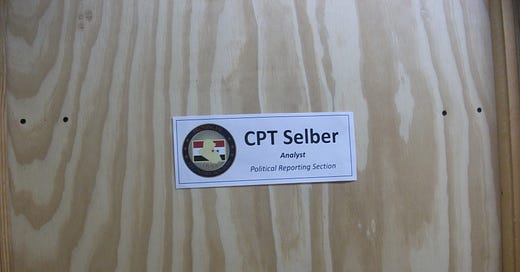Howdy,
And welcome to a new “newsletter.” In this little section, I’m going to tell war stories. What the hell is a war story? Well, it’s part of fiction, part fact, and part myth. If you want 100% accuracy, run along, child, and go somewhere else.
Tim O’Brien, one of America’s greatest storytellers, wrote it best:
A true war s…
Keep reading with a 7-day free trial
Subscribe to Grumpy Combat Veteran to keep reading this post and get 7 days of free access to the full post archives.



